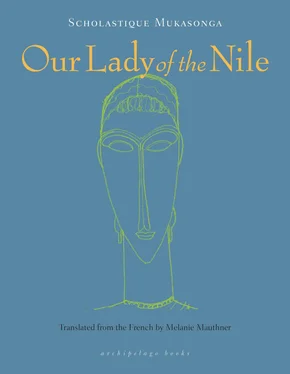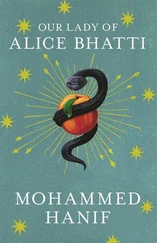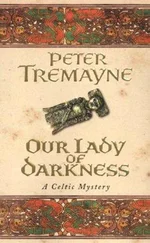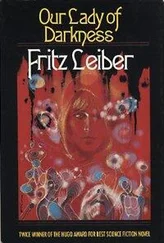“Will you please be quiet!” said Sister Lydwine crossly. “They lived a very long time ago, before your ancestors had even set foot in Rwanda.”
Africa had no history, because Africans could neither read nor write before the missionaries opened their schools. Besides, it was the Europeans who had discovered Africa and dragged it into history. And if there had been any kings in Rwanda, it was better to forget them, for the country was now a Republic. Africa had mountains, volcanoes, rivers, lakes, deserts, forests, and even a few cities. It was just a question of memorizing their names and finding them on the map: Kilimanjaro, Tamanrasset, Karisimbi, Timbuktu, Tanganyika, Muhabura, Fouta Djallon, Kivu, Ouagadougou. But there was a kind of large lizard in the middle. Sister Lydwine lowered her voice and, casting suspicious glances at the hallway, explained that Africa was breaking in two, and that one day Rwanda would find itself by the sea, though on which side of the continent, left or right, she really couldn’t say. To her chagrin, the whole class erupted into laughter. Clearly the whites never stopped coming up with far-fetched tales to scare the poor Africans.
Monsieur Van der Putten was the math teacher. His pupils had never heard him utter a single word of French. He communicated with his class only through numbers (French numbers, he couldn’t get around that) and above all by covering the blackboard with algebraic formulas or drawing geometrical shapes in every color of chalk. However, he did hold long conversations with Brother Auxile in a dialect that must have belonged to one of the Belgian tribes. But when he addressed Mother Superior, it was apparently in a slightly different dialect. Visibly annoyed, Mother Superior answered him in French, articulating every syllable. Monsieur Van der Putten walked off mumbling (in his incomprehensible dialect) words that were perhaps not quite as rude as they seemed to the listener.
Religious Studies was obviously Father Herménégilde’s domain. Using proverbs, he demonstrated how Rwandans had always worshipped a single God, a God named Imana who was like a twin brother to Yahweh, the Hebrews’ God in the Bible. The ancient Rwandans were already Christians without realizing it, and so they waited impatiently for the missionaries to arrive and baptize them, except that the devil got there first and corrupted their innocence. Wearing the mask of Ryangombe, he induced them into nocturnal orgies where countless demons took possession of their bodies and their souls, forcing them into obscene utterances and the committing of acts that decency forbade him from specifying in the presence of such chaste young ladies. Father Herménégilde crossed himself several times as he pronounced the cursed name of Ryangombe.
Happy the teacher fortunate enough to teach in Rwanda! There are no calmer, more obedient, more attentive pupils than Rwandan pupils. The lycée of Our Lady of the Nile illustrated these wise words perfectly, except for one class, that of Miss South, the English teacher, where there reigned, not quite chaos, but a certain agitation. It’s true that the lycée girls didn’t really understand why they were obliged to learn a language no one spoke anywhere in Rwanda, although you might overhear a little in Kigali, spoken by a few Pakistani immigrants recently arrived from Uganda, or (and this was a good indication of what kind of language it was) by Protestant pastors who, as Father Herménégilde liked to point out, forbade worship of the Virgin Mary. There was little about Miss South’s physique or behavior to make the language of Shakespeare appealing. She was a tall woman, dry and abrasive, with short hair except for one long strand — which she was forever trying to tame — that flapped against her oval glasses. She always wore a blue pleated skirt, faded from repeated washing, and a blouse with a pale-lilac floral print that was buttoned all the way to the neck. She’d clatter into class, fling her beat-up leather bag on the table, pull out a sheaf of papers, then stumble around the classroom, bumping into desks, as she handed them out. The pupils stared at her intently, cheeks resting on their right palms, waiting for the fall that never came. During the lesson, she would recite rather than read the stenciled text, before getting the class to repeat in unison what she had just said. The pupils wondered aloud whether she was blind, crazy, or drunk. Frida said she was drunk, confidently claiming that the English drink very strong spirits from dawn till dusk, spirits that were much stronger than urwarwa , like Johnnie Walker, which her ambassador friend had given her to taste, and which made her giddy. Sometimes Miss South tried to get the class to sing:
My bonnie lies over the ocean
My bonnie lies over the sea …
But this raised such a cacophony that the teacher from the class next door rushed in to restore a little quiet. “At last!” sighed the pupils.
It was the third year that French teachers had been working at Our Lady of the Nile. When Mother Superior received the Minister’s letter announcing that three Frenchmen would be arriving at the school as volunteer teachers, the news filled her with worry. She confided her misgivings and fears about these young men to Father Herménégilde: they were clearly inexperienced, since the letter specified they were coming in their capacity as “volunteers on active national service,” one of those odd expressions the French are so fond of inventing.
“So,” concluded Mother Superior, “these are young men who didn’t want to do their military service; they’re antimilitarists, possibly conscientious objectors, or Jehovah’s Witnesses — that’s all we need! It doesn’t bode well. And you know what happened in France, Father Herménégilde, not so long ago: students in the streets, strikes, demonstrations, riots, barricades, revolution! We’ll have to keep an eye on these gentlemen, monitor what they say in class, so they don’t spread subversion and atheism in our pupils’ minds.”
“There isn’t much we can do about it,” replied Father Herménégilde. “If they’re sending us these Frenchmen, it’s a matter of politics and diplomacy. Surely our small country needs to build broader relationships. After all, there’s more than just Belgium …”
The first two Frenchmen were delivered to the lycée by a car from their embassy, which reassured Mother Superior to a certain extent. Naturally, they wore no ties, and one of them, rather worryingly, had a guitar among his belongings, but they seemed reasonably polite, shy, and slightly dazed to find themselves suddenly transplanted to these remote mountains in a country they’d never heard of in farthest Africa. “Monsieur Lapointe insisted on coming here under his own steam,” explained the Cultural Attaché a little vaguely. “He should arrive before nightfall or tomorrow at the very latest.”
The third Frenchman did indeed arrive the next morning, in the back of a Toyota. He kindly helped the women with babies on their backs to climb out. The lycée guards pulled the ever-vocal gates wide open for him, as if greeting an official vehicle. It was the second lesson of the day, and the girls, or at least those sitting closest to the windows, saw a very tall, very skinny young man striding across the courtyard, dressed in jeans that had lost all their color, and a short-sleeved khaki shirt that hung open across his hairy chest. His only luggage was a backpack decorated with numerous patches. But what really startled those girls who were lucky enough to see him, making them squeal with surprise, causing all the others to jump up and rush to the windows, in spite of their teachers’ protests, was his hair, his thick, blond, wavy hair, which hung halfway down his back.
Читать дальше












